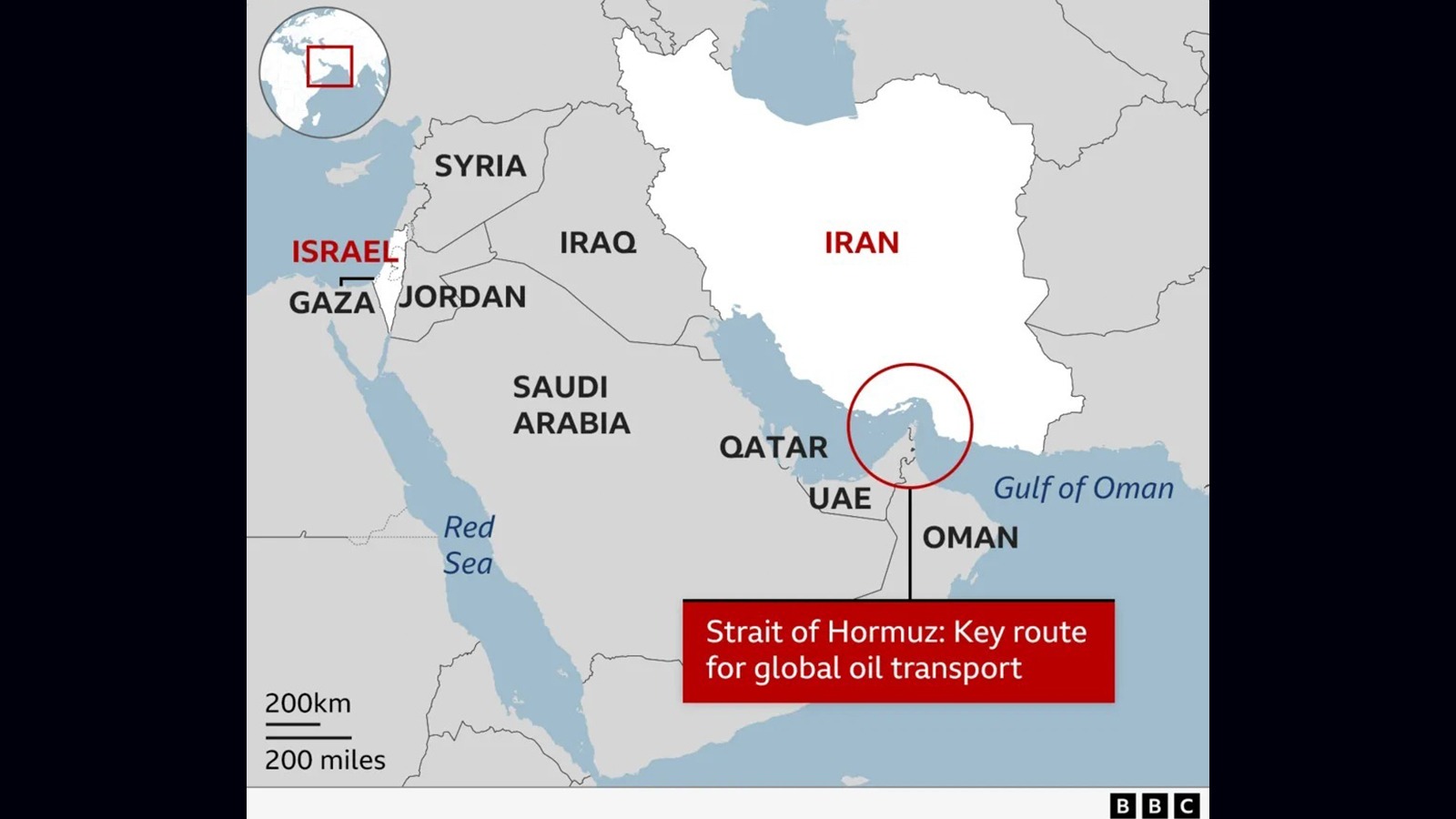Iran’s parliament has approved a measure to close the Strait of Hormuz, in response to US military action. However, the final decision is to be taken by Iran’s top leadership. While Iran’s Supreme Leader has not referred directly to the Strait of Hormuz, Iran’s Foreign Minister stated that U.S. military action would have long-term consequences.
The Strait of Hormuz, a narrow 33 km-wide passage between Iran and Oman, handles over 20% of global oil trade between 17.8 and 20.8 million barrels per day and significant LNG volumes. Most OPEC nations, including Saudi Arabia, Iran, and Iraq, rely on it for exports to Asian markets.
Any closure of the Strait could severely disrupt global oil flows, trigger a sharp increase in prices, and destabilize financial markets. The U.S. Fifth Fleet, based in Bahrain, is tasked with safeguarding maritime security in the region.
However, it would also impact Iran’s own exports and risk drawing Gulf nations into the conflict to safeguard their economic and energy interests.
China, a major consumer of Iranian oil, would be significantly affected.
Reports already indicate tanker diversions, reflecting heightened security concerns in the strait.
On 22 June 2025, the United States conducted precision airstrikes on Iranian nuclear facilities at Fordow, Natanz, and Isfahan under “Operation Midnight Hammer.” The strikes, involving B-2 bombers and Tomahawk cruise missiles, marked the first direct U.S. military intervention in the Iran-Israel conflict.
President Trump described the action as a “spectacular success,” stating the aim was deterrence not regime change. The Pentagon confirmed severe damage to the targets, with over 125 aircraft participating. Iran responded with missile attacks on Israeli cities and warned of long-term consequences. Global bodies such as the UN and IAEA have expressed concern over the escalation.
The situation remains fluid, with growing focus on Iran’s next steps and the stability of critical trade routes like the Strait of Hormuz.
This is a developing story. MitKat Advisory will continue to monitor the developments in the region.
Your Security Partner
MitKat’s Datasurfr platform delivers real-time, AI-powered risk intelligence, filtered and contextualised by expert analysts to support proactive decision-making. Paired with our Protective Services , we turn intelligence into action—safeguarding your leadership wherever they operate. Collaborate with MitKat to build true business resilience. From Risk Consulting and Security Design to Cyber Security and Executive Protection Services, our integrated solutions help organisations navigate today’s complex threat landscape and build robust, future-ready risk management frameworks.






